The battle to save net neutrality is heating up in court and Congress
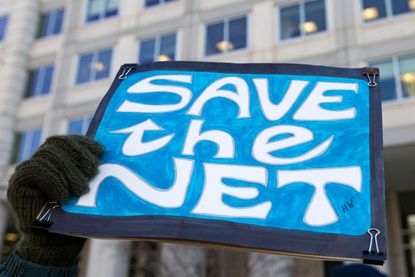

Senate Democrats said Tuesday that they have 50 votes for a measure to restore net neutrality rules overturned by the Republican majority on the Federal Communications Commission (FCC), putting them one vote shy of being able to force the measure. But even if House Speaker Paul Ryan allowed a vote on the measure and it passed, President Trump would likely veto it, despite net neutrality's broad popularity. So Tuesday also saw a handful of federal lawsuits filed to block the FCC's net neutrality repeal.
One suit was filed by the attorneys general of 21 states and Washington, D.C., all of them Democrats, arguing that the FCC's "arbitrary and capricious" decision violated federal law and the FCC's longstanding policy of preventing internet service providers from blocking or throttling websites. "The repeal of net neutrality would turn internet service providers into gatekeepers — allowing them to put profits over consumers while controlling what we see, what we do, and what we say online," said New York Attorney General Eric Schneiderman. The Mozilla Foundation, the Open Technology Institute, and the public interest groups Free Press and Public Knowledge also filed separate lawsuits.
The 2015 rule giving the FCC teeth to enforce net neutrality, like previous net neutrality rules, was challenged in court by telecom firms, and a federal appellate court sided with the FCC in that case. Broadband companies are now siding with the FCC while the Internet Association, a trade group that includes Google and Netflix, is backing the net neutrality side. The FCC said its December rule stipulated that its net neutrality repeal couldn't be challenged until it was logged in the Federal Registry, so Tuesday's lawsuits were preliminary moves to determine which court will hear this round of legal challenges.
Subscribe to The Week
Escape your echo chamber. Get the facts behind the news, plus analysis from multiple perspectives.

Sign up for The Week's Free Newsletters
From our morning news briefing to a weekly Good News Newsletter, get the best of The Week delivered directly to your inbox.
From our morning news briefing to a weekly Good News Newsletter, get the best of The Week delivered directly to your inbox.
Sign up for Today's Best Articles in your inbox
A free daily email with the biggest news stories of the day – and the best features from TheWeek.com
Peter has worked as a news and culture writer and editor at The Week since the site's launch in 2008. He covers politics, world affairs, religion and cultural currents. His journalism career began as a copy editor at a financial newswire and has included editorial positions at The New York Times Magazine, Facts on File, and Oregon State University.
-
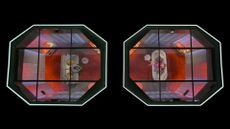 The complaint that could change reality TV for ever
The complaint that could change reality TV for everIn the Spotlight A labour complaint filed against Love Is Blind has the potential to bolster the rights of reality stars across the US
By Abby Wilson Published
-
 Assad's fall upends the Captagon drug empire
Assad's fall upends the Captagon drug empireMulti-billion-dollar drug network sustained former Syrian regime
By Richard Windsor, The Week UK Published
-
 Crossword: December 19, 2024
Crossword: December 19, 2024The Week's daily crossword
By The Week Staff Published
-
 Judges block $25B Kroger-Albertsons merger
Judges block $25B Kroger-Albertsons mergerSpeed Read The proposed merger between the supermarket giants was stalled when judges overseeing two separate cases blocked the deal
By Peter Weber, The Week US Published
-
 Rupert Murdoch loses 'Succession' court battle
Rupert Murdoch loses 'Succession' court battleSpeed Read Murdoch wanted to give full control of his empire to son Lachlan, ensuring Fox News' right-wing editorial slant
By Peter Weber, The Week US Published
-
 Bitcoin surges above $100k in post-election rally
Bitcoin surges above $100k in post-election rallySpeed Read Investors are betting that the incoming Trump administration will embrace crypto
By Peter Weber, The Week US Published
-
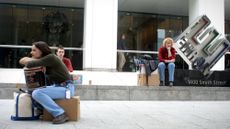 Enron mystery: 'sick joke' or serious revival?
Enron mystery: 'sick joke' or serious revival?Speed Read 23 years after its bankruptcy filing, the Texas energy firm has announced its resurrection
By Peter Weber, The Week US Published
-
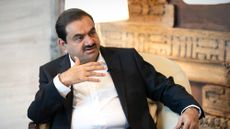 US charges Indian tycoon with bribery, fraud
US charges Indian tycoon with bribery, fraudSpeed Read Indian billionaire Gautam Adani has been indicted by US prosecutors for his role in a $265 million scheme to secure solar energy deals
By Peter Weber, The Week US Published
-
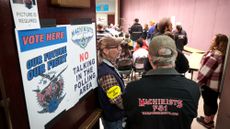 Boeing machinists approve contract, end strike
Boeing machinists approve contract, end strikeSpeed Read The company's largest union approved the new contract offer, ending a seven-week strike
By Peter Weber, The Week US Published
-
 US economy still strong in final preelection report
US economy still strong in final preelection reportSpeed Read It grew at a solid 2.8% annual rate from July through September
By Peter Weber, The Week US Published
-
 Boeing machinists reject deal, continue strike
Boeing machinists reject deal, continue strikeSpeed Read The rejection came the same day Boeing reported a $6.2 billion quarterly loss
By Peter Weber, The Week US Published